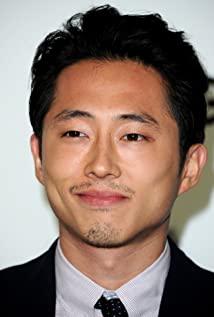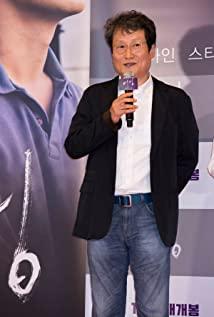After watching the movie "Burning" and then looking back at Haruki Murakami's novel "Burning the Barn", after a comparison, the novel is quite sad. Although the film was adapted from a novel, it has become director Li Changdong's personal film. He endowed the film with more content and thinking, and more delicately shaped the protagonist's image in a more three-dimensional manner, and his behavior was more rationalized, with a strong sense of critical reality. In contrast to the novel, it seems that the relationship between the protagonist "I" and the heroine is like a passerby. The second male's behavior is also more obscure, making the novel too bland. It is estimated that after reading this short story by Murakami, most people will not be able to have a deep impression. This is the power of director Li Cangdong, just as Zhang Yimou gave Mo Yan's novel "Red Sorghum" a new soul.
First of all, the role arranged by the movie for the male protagonist Li Zongxiu (played by Liu Yaren) is: a college student who has just graduated, and his major is literature, because his father is arrogant and does not succumb to the authority and power of this world. Therefore, the male protagonist's character is close to idealism. It can be seen from several factors: First, he has just graduated and has not experienced the world. The second is literature, which is more emotional than rational. The third is the influence of his father, which can be seen from his dissatisfaction when he was looking for a job and listening to his boss's instructions.
After studying the character of the protagonist, the plot that emerges tends to be rationalized. From this, the image of the male protagonist can be outlined: idealistic, at the bottom of society. The heroine Huimei (played by Kim Jong-seo) is similar to the male protagonist. She is at the bottom of the society, poor in material economy, but has ideals. It can be seen from her saving money to go to Africa to watch tribal dances. The hero and heroine met by chance, the heroine recognized him at first sight, and then the two had a relationship. From now on, we can see that in the days after the heroine left, the hero had to masturbate every time he went to the heroine's residence. This image comes up repeatedly, along with other images of cats, toilets, cows, and novels.
The cat represents the female protagonist, and the cow is very similar to the male protagonist. The female protagonist has a relationship with the male protagonist, hoping that the male protagonist will take care of her cat while she goes to Africa. After the female protagonist was later with the male second Ben (played by Steven Yuan), the male protagonist saw a cat in the male second's house for the first time on the day when the female protagonist disappeared. At this time, the cat was adopted by the second male. In the past, it was hiding and refusing to see the male protagonist with his true colors. And this time it was in the second male house, trying to get rid of the shackles of the room. After meeting the male protagonist, it gets close to the male protagonist again. Then there is the cow. The cow represents the working people at the bottom. It can be said that the role of the male protagonist's father is even so. The male protagonist's father started an animal husbandry factory and was later imprisoned because of a change. The male protagonist finally sold the only cattle, which were all his family property.
Regarding the bathroom, the male protagonist went to the second male's house several times to use the bathroom. First of all, the high-end ornate bathroom is a symbol of the male two's status and wealth. This has a great impact on the male protagonist, and also uses the bathroom to connect the relationship between the male second and many lower-level women like the female protagonist. Although the movie did not directly call the name, it can be seen from the table where the male protagonist sends the female protagonist. In the drawer of the bathroom of the second man's house, the male protagonist found many small accessories for women for the first time. After the female protagonist disappeared, he found the watch he gave to the female protagonist again in the drawer of the bathroom of the second male house.
Novels: The male protagonist's spiritual pursuit lies in writing novels. He originally had ideals and hoped that he could write novels and become a writer. However, after meeting the second male, the second male would mention novels to him every time they met, "How is your novel writing going?" . And also read Faulkner, the author he recommends. In the end, the male protagonist's novel was not written. "I don't know what novels to write yet," he said . "For me, the world is like a riddle."
Masturbation: The male protagonist's masturbation almost always happens in the female protagonist's room. He looks at the mountains outside the window, and occasionally the sun shines in the window. The heroine once told him that when there are only a few times in his room, there will be sunlight reflecting in, which also hints at the heroine's life.
This raises a question, does the male lead really love the female lead? I think there is. The heroine is the sunshine in the dark life of the hero, not only she gave him the body. I believe that the female lead also loves the male lead, because she is with the second male lead, and she is looking for the male lead over and over again. But the film is not limited to simple love, he has a larger theme.
And then there's what the second male said to the male lead. He said he liked burning plastic sheds. "Those useless, dirty and unsightly plastic sheds, they seem to be waiting for me to kill him, and I feel joy watching those burning plastic sheds."
Li Zongxiu : "Those are useless and unnecessary. Are you the one to judge?"
Ben: "No, I'm not judging, I'm just accepting, accepting the fact that they're waiting to be burned, it's raining like the rain, the river overflows, the flood washes people away, what does the rain do Judgment? There is no right or wrong, it is just obtained naturally, and the so-called natural morality is similar to co-existence.”
We can see from the dialogue. The second male is the pride of being at the top of society. Pretend to be elegant and gentle with the male and female protagonists. In fact, he hated these dirty and messy plastic sheds in his heart. He was just looking for an opportunity to burn them. At the second male's party, the female protagonist danced the "Great Hunger" dance she learned in Africa with great interest under the coaxing of the second male's friend. The camera moved to the second male, he yawned repeatedly, he was not interested . After the day when the female lead disappeared, the male lead once again participated in the second male and his friends' party at the home of the second male, except that the second female was replaced by another woman who seemed to be at the bottom, everything else was business as usual. This is how the male second and his high society friends entertain.
When the heroine just came back from Africa, she and the second man met at the airport where there was a riot in Africa, and the hero went to pick up the heroine. The three of them ate hot pot together. The female protagonist was talking about her experience in Africa, and she burst into tears when she was emotional. The second male said that he had never cried in his life. What kind of person is a person who does not know what sorrow or tears are?
But the male protagonist didn't understand it. He really thought that the male second was burning the plastic shed near his house. So he began to pay attention to the plastic shed near him every day.
But when the second man first set the "plastic shed" near his house on fire, he didn't know it. Until the heroine lost contact, he no longer paid attention to the plastic shed, but the heroine.
He tried every means to find the heroine through various channels. However, whether it is the heroine's colleagues, work place or the heroine's family, it seems that they don't care about the heroine. The movie mentions that the heroine fell into a well at the age of seven. Maybe this is the reason why the heroine has always been obsessed with the hero. "I fell into a well at the age of seven and cried for several hours at the bottom of the well. While crying, I looked up, waiting for someone to appear, and I kept looking at the distant sky." But her mother never remembered it, not even the male protagonist, and many people didn't remember it. After repeated confirmation by the male protagonist, his mother told him that there was indeed a dry well in the past. The heroine told her that it was the hero who saved her.
The heroine's mother said, "It's not like that at all. She can make up stories so well that she doesn't show any traces."
Ben said, "Zongxiu, do you know? You are special to Huimei. She said that you are the only person she believes in in this world, and that you will always be on her side."
The male protagonist and the female protagonist are both marginal and at the bottom, but for them, the world is like a riddle that they cannot guess. Like an abandoned plastic shed, no one cares when it burns. The heroine's mother didn't even care that the heroine fell into the well when she was a child, so she didn't care about her disappearance later.
In the whole world, I am afraid that only the male protagonist cares about the female protagonist. This is his spiritual sustenance and the reason for his existence. Until he knows that he has been "burned" by the male protagonist and destroyed, his only resistance is to fight a tooth for a tooth.
Attached is an article about the film interviewed by Jia Zhangke at the Pingyao Film Festival for your reference.
https://mp.weixin.qq.com/s/YcrDMCaB-AS2vZ8RkeM_Jw
View more about Burning reviews










